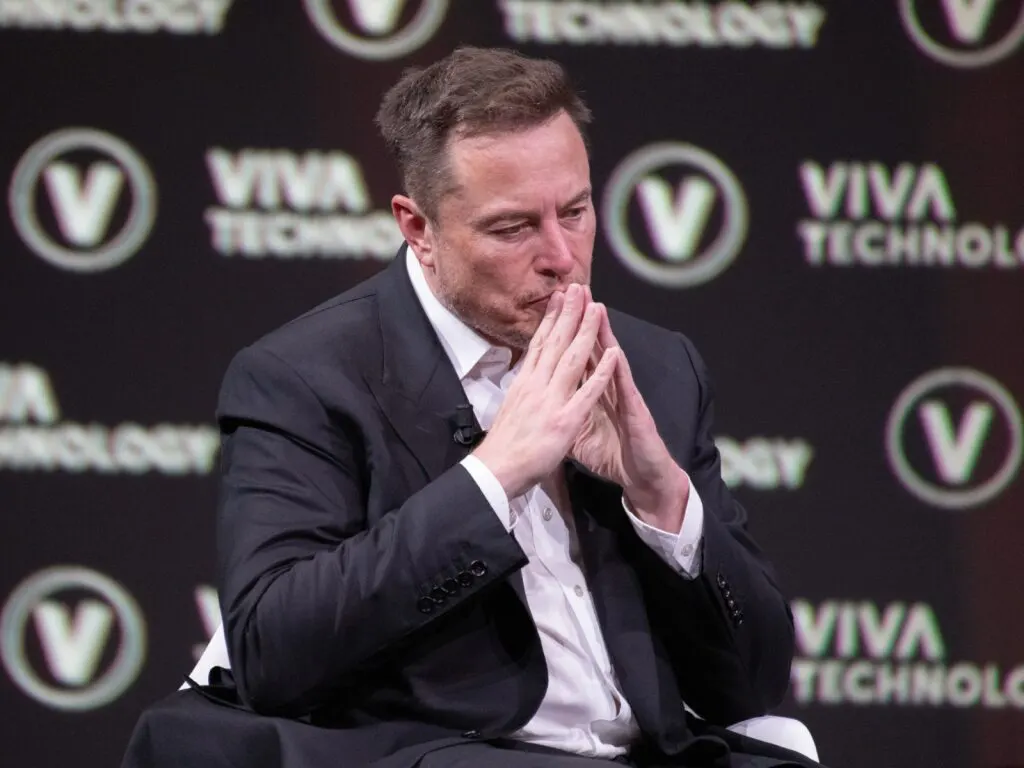Published on: September 10, 2025 at 11:22 am
By Nick Keppler
Even as demand for electric vehicles rises, Telsa is losing ground. In the first quarter of 2025, the company sold nine percent fewer vehicles than it did in the first quarter of 2024. The second quarter was even worse; sales dropped 13.5% from the previous year. The company’s stock prices have wavered but never returned to their December 2024 peak.
Some analysts have pointed to factors such as increased competition from other electric vehicles brands, but few deny that a glaring problem is the high-profile political activity of Elon Musk, the CEO, self-proclaimed “Technoking,” and face of the company.
Musk took over as Tesla CEO in 2008. Since then, Tesla stakeholders have endured his combative streak, impulsive social-media usage, and multitasking as the head of other companies. But over a year-plus that defies concise summary, he has alienated large segments of potential Tesla buyers—first as the largest financial contributor to the presential campaign of Donald Trump and then as the unofficial de facto head of the president’s Department of Government Efficiency (DOGE). More recently, Musk has reemerged as a disillusioned Trump critic, lambasting the president on X.com and vowing to start his own political party. Even longtime Tesla defenders worry about its damaged brand and distracted CEO.
Musk’s seeming neglect of Tesla can be explained—to an extent—through social identity theory, said Academy of Management Scholar Marc Gruber of the École Polytechnique Fédérale de Lausanne. Musk fits into the missionary identity type, a kind of entrepreneur that primarily sees their business ventures as ways to instigate social change.
“He wants to change the world towards electric vehicles to save the planet that way, and even if others copy what he’s doing, that’s great for him, because even more people will drive electric vehicles,” Gruber said.
In a 2018 interview on CBS’s 60 Minutes, Musk said that “the whole point of Tesla is to accelerate the advent of electric vehicles and sustainable transport.” He added, “If somebody comes and makes a better electric car than Tesla, and it’s so much better than ours that we can’t sell our cars and we go bankrupt, I still think that’s a good thing for the world.”
Rare is the CEO who daydreams or talks about his own company’s bankruptcy, but Gruber said that profit has not been the main driver for Musk, whose SpaceX seeks to take humanity into space and other planets and whose purchase of Twitter and rebranding it as X seeks to redefine the public square and influence discourse. Even if some of Musk’s views and his intensity about politics are a relatively new phase for him, he has always seen himself as a missionary of sorts and puts ideals ahead of the financial health of any company, and that explains “the way he moved to the government and neglected Tesla for a while.”
Musk is also a unique figure who defies clear classification, said Gruber, and it’s easy to put vision over profit when your net worth is more than $400 billion.
“He has significant wealth besides Tesla—he doesn’t have to worry about his private fortune anymore,” Gruber said. “If he wouldn’t be that shielded with all of his wealth, would he still only talk about the mission?
“He’s a bit mysterious in that sense…and we do not have another poor Musk to compare him to!”












